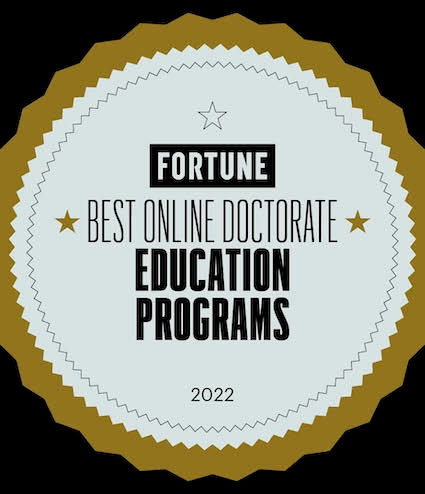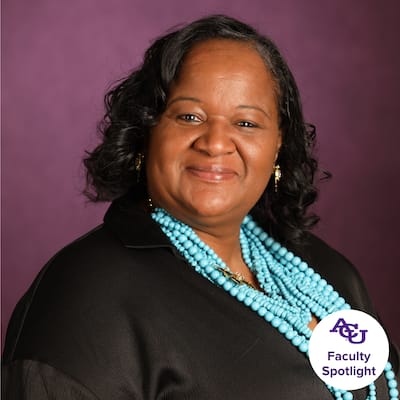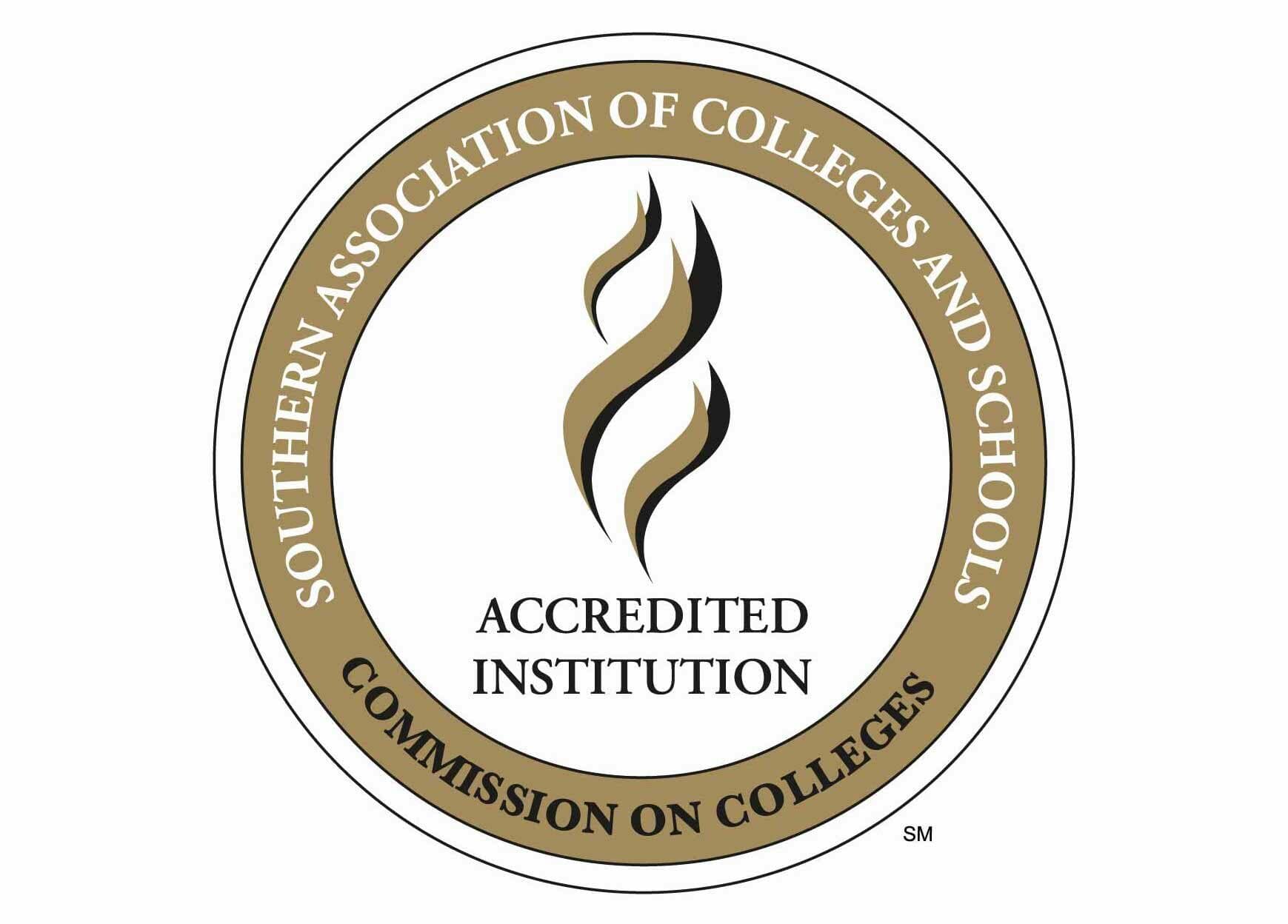Learn More
Discover Your Leadership Style
You view leadership as organic and evolving, so advance your skills while continuing to progress in your career with this fully online Ed.D. program. As a student of ACU Online, you are part of a vibrant, virtual, Christ-centered community that prioritizes your achievements and helps you balance work, life and other commitments.
$3,000 Scholarship for Doctor of Education Students
New students will receive a $3,000 scholarship awarded during your first two years in the Ed.D. program. New students that begin classes in our Spring 1 session beginning January 14, 2025 will automatically receive the scholarship.
About the Program

Connect and merge transactional and transformational leadership styles through ACU’s online Doctor of Education in Organizational Leadership program to make a difference in your workplace, school or community. Strengthen and expand your skills through a research-based approach resulting in a dissertation while understanding how communication, connection and diversity uplift and inform organizational culture and strategy. Tackle the latest challenges while pursuing the next level of your professional journey.
Program Structure
All the Details on Your Degree
Our program is organized around five core competencies: personal development, positive leadership development, collaboration and communication, organizational assessment, and organizational culture. Upon completing the Doctor of Education in Organizational Leadership program, you will know not only how to lead, but how to lead with purpose based upon the foundation of Christian vocation.
Required Hours
60 hours
3-5 year timeframe
Cost: $767/Hour with $200 resource fee per session
Example Coursework
Leading Organizational Change
Introduction to Doctoral Study
Self-Assessment in Leadership
Applied Research Problems and Literature
Upcoming Start Dates
January 14, 2025
March 11, 2025
Concentrations
Consisting of 60 credit hours, the online Ed.D. in Organizational Leadership is divided into three key parts. Foundational courses enhance universal, broadly applied leadership skills. A concentration translates these skills to your particular field to better understand how to empower your staff. Research courses help you examine leadership from observational and data-gathering perspectives and prepares you to develop your dissertation.
At the program’s core, the foundational courses advance what you know about classic and contemporary leadership theories, weave in human resources, finance and technology development concepts and foster a change-based mindset while diving into the latest political and social issues influencing leadership applications. From here, you’ll select from one of six concentrations:
Positive Leadership
Growth doesn’t happen by chance. A leader’s approach influences results, and that’s the focus of the field of positive leadership. Dating back to the early 2000s, this concept focuses on the organic relationship between organizations and their members and harnesses this fluidity to nurture a culture of excellence and growth. This concentration examines the outcomes, processes and attributes that take you and your organization beyond existing to thriving and excelling.
Healthcare Administration
For those aspiring leaders looking to navigate the complex landscape of healthcare services, this concentration emphasizes a dual focus on leadership principles and the intricacies of healthcare administration by allowing students to customize their experience through courses such as strategic planning, revenue cycle management, informatics, and innovations and trends in healthcare.
Higher Education
Now more than ever, leadership shapes a school’s and district’s culture. Providing a well-rounded understanding of the higher education landscape, this concentration equips you to shepherd students’ progress and promote faculty members’ strengths through courses in resource management, legal and ethical considerations, diversity, student development, spiritual formation, assessment and research.
Conflict Management
Collaboration is the backbone of growth. Yet, when an organization experiences conflict, the leader illuminates the path forward. The Conflict Management concentration focuses on the dynamics of interpersonal friction and effective negotiation and mediation skills. Developed for individuals in a wide variety of organizational and personal environments, this concentration also delves into organizational decision-making theory and practical alternatives designed to promote a culture of collaboration, resiliency and inclusivity.
Learning with Emerging Technologies
How quickly and effectively does your organization or school embrace and implement new technologies? Don’t just wish or speak theoretically. Get a head start and begin developing a plan with the Learning with Emerging Technologies (LET) concentration. These courses focus on all things related to technology-enhanced learning environments, including course design and development, ways to meet challenges, the evaluation of emerging technology practices, the theory and structure of instructional design, adult motivation, and self-directed learning.
 Nonprofit Leadership
Nonprofit Leadership
The Nonprofit Leadership concentration is tailored for leaders aspiring to serve as nonprofit directors and managers. It equips you with insights into leading and managing volunteers and organizational members, employing a specific set of skills and knowledge that address the unique challenges and opportunities within the nonprofit sector. Ideal for those committed to making a positive societal impact, this concentration can unlock diverse career paths in nonprofit organizations, social enterprises, public service entities and non-governmental organizations (NGOs).
.
Spotlight

ACU and Alief ISD Join Forces
ACU is partnering with Alief ISD to launch innovative online degree programs and professional development pathways tailored for educators in the Houston area. This collaboration is all about growth—helping paraprofessionals become credentialed teachers, supporting current teachers in advancing their careers, and empowering educational leaders. Together, we’re creating new opportunities for educators to excel and make a lasting impact in their communities.

Student Spotlight: Bashelia Ward
Radiating as a passionate educator and advocate for knowledge and research, Bashelia Ward, a student in ACU’s online Ed.D. in Organizational Leadership, aims to bridge her visions for restorative educational practices with her love for fostering equitable opportunities within marginalized communities across schools and districts. Hoping to conclude her studies by May 2024, Bashelia sees this moment as just the beginning, looking ahead toward her next career.

Student Spotlight: Courtney Brazile
As a professor of communication studies at Dallas College and student in the online Doctor of Education in Organizational Leadership program at ACU, Courtney knows a thing or two about what it means to strive for excellence despite the obstacles that come along. Recognized for his work in and out of the classroom, Courtney reflects on his career and is excited to see how ACU Online can help him continue to flourish as a professional.

Faculty Spotlight: Katherine Yeager
Known for her professionalism and impressive teaching skills, Dr. Katherine Yeager is not only considered one of the top assistant professors and committee chairs within the Doctor of Education in Organizational Leadership program, but she’s also an advocate for her students and their goals to become educated and trained leaders in the workforce.

ACU Ranked Fifth in the Nation for Online Ed.D. Program
Abilene Christian University has been named one of the nation’s Best Online Doctorate in Education (Ed.D.) Programs for 2022. Fortune Education, a highly respected industry and education ranking provider, presented the award.

Student Spotlight: Tina Patterson
As a mother, wife, student, research fellow and manager for a major educational curriculum company, Tina Patterson embodies what it means to have a dream of engaging with students and teachers, and see it come to fruition through hard work, dedication, and resilience. With a Doctor of Education degree soon on the horizon, Tina is excited to make a difference for marginalized communities.

Faculty Spotlight: Dr. Twyla Williams-Damond
From housewife to renowned scholar, Dr. Twyla Wiliams-Damond’s path toward reforming and inspiring the next wave of educators takes a lot of hard work, but it’s worth it. On top of serving as dissertation chair for students seeking to earn their Doctor of Education in Organizational Leadership, Twyla has founded two charter schools and an education consulting agency – all dedicated to showing students in underserved communities how to achieve their goals in and out of school successfully.

The Difference Between Transactional and Transformational Leadership
Transactional and transformational practices lie at separate ends of the leadership spectrum, but both are applicable to today’s business environment. Read on to learn the differences between these styles and how they are practiced in the workplace.

Student Spotlight: Jerica Nickerson-Guidry
Pursuing higher education was never a question for alumni Dr. Jerica Nickerson-Guidry, but a matter of determining which level of degree would support her professional goals. Check out our latest spotlight to see how our Doctor of Education in Organizational Leadership program helped Jerica reach her dream of becoming a professor and department chair and serve the Houston community through servant leadership.

The 5 Traits of Positive Leadership to Master
Do you want to take your leadership skills even further? Here are five skill areas where you need to focus your attention to achieve personal and professional success.

As businesses grow and expand, the need for energetic, collaborative leaders interested in nurturing success through teamwork, culture and inclusion continues to grow. Reflecting this trend, the Bureau of Labor Statistics has identified 9% more leadership and management roles across a wide swath of industries between 2020 and 2030.
Embrace the challenge and stand out with an online Ed.D. in Organizational Leadership from ACU. To lead improvement through commitment and inspiration, this program shows you how to:
- positively influence organizations through the expression of your vocation;
- create, interpret and administer practices that contribute to learning and personal growth in all organizational contexts;
- build a shared understanding and quality professional and personal relationships through available communication channels;
- demonstrate an understanding of data, information and empirical evidence;
- apply organizational assessment strategies to their respective contexts; and
- influence organizational culture through positive, encouraging leadership practices.

To be considered for admission, students must:
- Complete the online program application accompanied by a non-refundable processing fee.
- Submit official transcripts showing earned bachelor’s and master’s degree from a regionally accredited college or university or the equivalent.
- Have a cumulative GPA of 3.0 or above, probationary status may be granted.
- Provide an academic writing sample.
- Submit a current resume.
Graduation Requirements: Students must earn a 3.0 GPA or higher to meet graduation requirements including successfully completing all required courses and dissertation hours.

Abilene Christian University is accredited by the Southern Association of Colleges and Schools Commission on Colleges to award associate, baccalaureate, master’s and doctoral degrees. Contact the Commission on Colleges at 1866 Southern Lane, Decatur, Ga. 30033-4097 or call 404-679-4500 for questions about the accreditation of ACU.
Abilene Christian University enjoys a strong national reputation as one of the leading private Christian universities in the west and southwest, indicated by various ratings (such as U.S. News and World Report and other reports).






 Nonprofit Leadership
Nonprofit Leadership